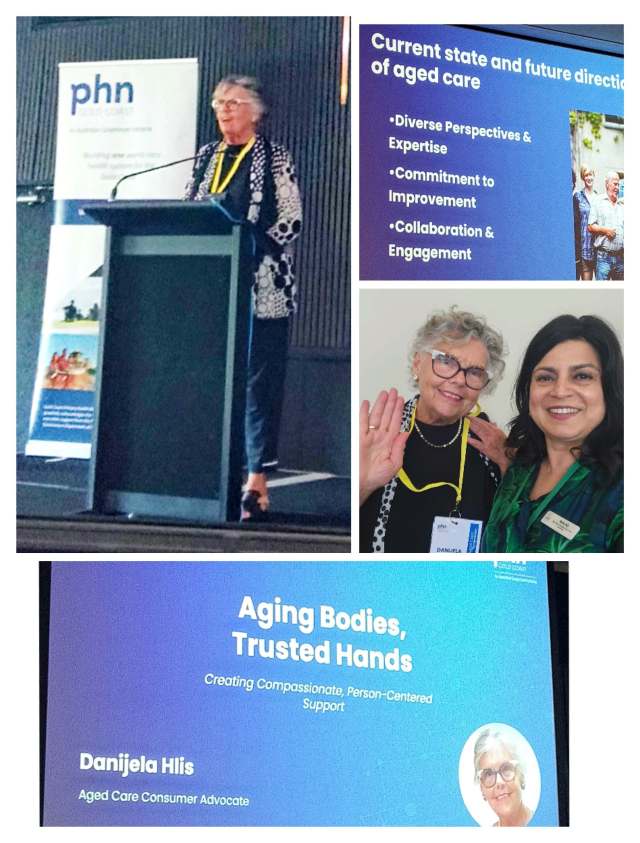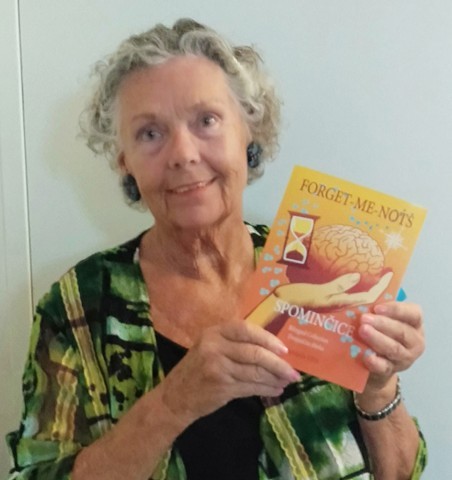
The same human rights to quality life and care for everyone are just a dream. Take the example of a person suffering a stroke, who is paralysed on one side and experiencing cognitive decline and no bowel or bladder control.
If they are under 65, they will get access to the National Disability Insurance Scheme, which offers more funding for care at home than if they are over 65 and reliant on the aged care system. If they live in a city, the choices for care, support and service providers are greater than in regional and remote areas.
If they speak English, their capacity to have good communication for care and lifestyle will help. If they are from a culturally and linguistically diverse background – and particularly if they have reverted to their mother tongue – they may get reasonable care and support in a city but more likely experience isolation and unmet care needs in regional areas. This is also true for First Nations people.
The state a person lives in also impacts their experience, rather than all Australian seniors and elders receiving the same concessions, rental assistance, equal conditions for living and enabling and quality person-centred aged care.
I arrived in Australia in 1972, hired by the Australian Ambassador in Rome as an interpreter and translator. He told me Australia “needed me”. I spoke six languages. Australia was in the middle of a construction boom. Carpenters, welders, boilermakers were in high demand, but many migrants spoke no English.
My role, in the personnel department of Transfield, was to interview candidates in their mother tongue, establish their qualifications, and send them to their work all around Australia. I also found homes for their families in Sydney and schools for their children. It was a hard life including separation for all involved.
I mention this because these same beautiful migrants are those I am advocating for now. Many live with dementia and have reverted to their mother tongue. Many are living alone, frail and unsupported. Too many are abandoned in aged care homes, voiceless and unaware of their rights or of advocacy organisations. Many have never been asked to participate in aged care or dementia research because they are not fluent in English. Their needs remain unknown and unmet.
Care should be person-centred, compassionate
Care is more than medicine or routine; it is empathy and respect. It’s about listening, understanding, and valuing the whole person – culturally, emotionally, and spiritually. But our governments’ unwillingness for decades to come up with innovative practices, policies and enforceable laws with clearly defined consequences for breaches to ensure culturally appropriate care, leaves a third of older Australians feeling unwanted and disregarded.
There have been some good initiatives and positive changes in recent years but too much is still at the discretion of the provider such as whether an aged care home will return some of an urgently needed accommodation deposit to a resident or refuse the request and provide it to their estate to get after the resident’s passing.
When both my parents passed away, as a long-time carer, I was lost and needed to re-invent myself. Family carers, especially among CALD and First Nations communities, have less support, fewer respite options, and are often unaware of counselling services. We save this country billions of dollars every year but we carers continue to be neglected and taken for granted.
As an active Dementia Australia advocate, member of OPAN’s National Older Persons Reference Group, peer advocate and bicultural social support visitor, my paid and volunteer work on the Sunshine Coast and in Cairns – where I have worked and volunteered for 11 years – is busy.
My experience started with my father, who was in my care at home in Tasmania. Our palliative care journey was long and painful. We received very little support. I also cared for my mother who had dementia for many years. Then I became too ill and she spent the last couple of years in an aged care home.
Despite all the bicultural training I delivered to the facility including bilingual posters and talking albums, my mother died prematurely because her cry for help was misunderstood. The night nurse thought mum was crying because she was sad. I was called too late and so was the ambulance.
No bilingual tools or apps were used to help staff understand that mum was not feeling well. On the phone she said: “Pridi hitro, tako mi je slabo, vroce je.” It means “Come quickly, I don’t feel well, it is very hot.” I got dressed and drove to her but I was 20 minutes too late – Mum had a heart attack.
A few years ago, as a bilingual social support worker, I was sent by my organisation to Mr C, who was living with dementia. He was once a vibrant Italian man who had become silent, with his family told it was likely due to dementia. But within an hour, he and I were singing O sole Mio. He had simply reverted to his mother tongue, and his Australian born family and doctors did not realise this.
We need more research and training
I remember my client Charlie, an Italian resident I visited during his end-of-life care. He was given soft Italian music to soothe him, but his hearing aids were left on the table. When I asked why, a staff member said, “He’s dying. He can’t hear.” But when I sat beside him and gently touched his face, a small smile appeared. He felt that he was not all alone. We must not assume. Improved training for correct palliative and end-of-life care is needed.
Mr V was receiving 16 hours of home care support for 10 years until his family carer collapsed under the weight of long-term home care and he had to enter permanent care. Both suffer, he, feeling abandoned, she shame and guilt. No culturally appropriate care is offered, so she continues to cook and delivers his meals and arranges outings.
The aged care home gets a large amount of government funding for his care. If half of this was offered to him, he could still be at home with more support than before. There would be more cost savings for the aged care budget if the government improved funding for home care and created a carer’s support package.
Instead, they are asking for co-contributions, as if this is the way forward. Does anyone understand how income and assets tests are done? I am on the Age Pension, with no savings, and pay high monthly fees in my retirement village. The government tells me I have a type of contract that does not qualify me for rental assistance. My friend, on a partial Age Pension with over $500,000 in superannuation and savings has a different contract in her 55+ village and gets rental assistance.
Older people are often silent because they fear losing control. One of my friends, a retired professor, was found dead in his apartment two weeks after passing. He was 98 and I think too scared to ask for help. We must break the stigma and make enabling and care more accessible.
Person-centred care means acknowledging the whole person. We need to raise awareness, and we need to educate and support family carers better. Too often it is the adult children who convince their parents to enter residential care too soon. In addition, health professionals should know how to direct people to Dementia Australia, My Aged Care and Carers Australia and give out brochures.
After my breast cancer diagnosis, I received brochures, videos and access to a dietitian, free therapies and a breast cancer nurse. I never felt alone or unsupported. Fellow residents at my retirement village return from a visit with the geriatrician with a diagnosis of dementia and nothing else. This is unacceptable.
We still have no legislation requesting ethnic-specific care, no mandated use of interpreters, bicultural apps and tools, and no specific and serious consequences when quality standards are breached. Recommendations are not enough. The last 20 years have proven this.
We have a lot of culturally appropriate free training materials available, communication cards in many languages, apps and translated information. But these tools are underused. In remote and regional areas, they’re practically unknown.
In my opinion, the lack of their use should negatively affect providers’ accreditation and star ratings and attract fines. We need laws with consequences when aged care providers neglect culturally appropriate care – just as there are consequences for not wearing a seat belt. Aged care is about people, and people deserve dignity, whatever language they speak, whatever illness or disability they are experiencing.
I applaud those providers who try to match their clients and their workers who come from the same cultural background. We need to name them and celebrate them. Culturally appropriate care should not be an optional extra – it’s essential.
When I ask myself how care models can be designed to put consumers’ preferences and choices at the centre. The answer is always with us, as co-designers. We must concentrate more on early enablement to delay the need for full care – offer a stair lift instead of sending the person into permanent care by default.
Opportunities for reform
The most pressing concern, however, is society’s lack of respect and recognition for seniors and elders, and those who support them, including family carers and paid workers.
I agree with my colleagues at OPAN that new legislation coming into effect on 1 November including the Statement of Rights, strengthened Aged Care Quality standards and supporters replacing representatives, are positive steps.

Some new reforms need more work including the single assessment system, restrictive practices authorisation, co-contributions, and financial hardship measures.
Improved respite must also be a priority, and made available to all carers, especially those looking after someone who speaks no English. Volunteers, like carers, deserve better. Why not offer real recognition, support, and training in return for the billions of dollars we save the government each year?
How we age – and whether we age with dignity – depends on the systems we build, and the hearts we bring to our work. Behind every care plan is a story. Behind every statistic is a human being. The system today penalises ageing instead of supporting it. That has to change.
I believe the new system of care and the new Aged Care Act will require many amendments because it was drafted by professional policy makers without seniors and elders as co-designers.
Let us never forget that most of today’s seniors were once hard working citizens, and many of us helped to build the power stations that supply our electricity. We share and carry the history of this country in our hearts together with the First Nations people on whose lands we are grateful to live.
If we are truly serious about care and respect, we must accept that while we are all different, our human rights are equal. To be the lucky country, we have to embrace and value our diversity.
Danijela Hlis – who has a professional background in human resources and industrial relations – is an author, dementia and CALD advocate and past member of the Aged Care Council of Elders.
This contribution is drawn from her presentation at the PHN Gold Coast Aged Care Symposium in June 2025 and this story first appeared on Australian Ageing Agenda, a Positive Impact Media publication.
